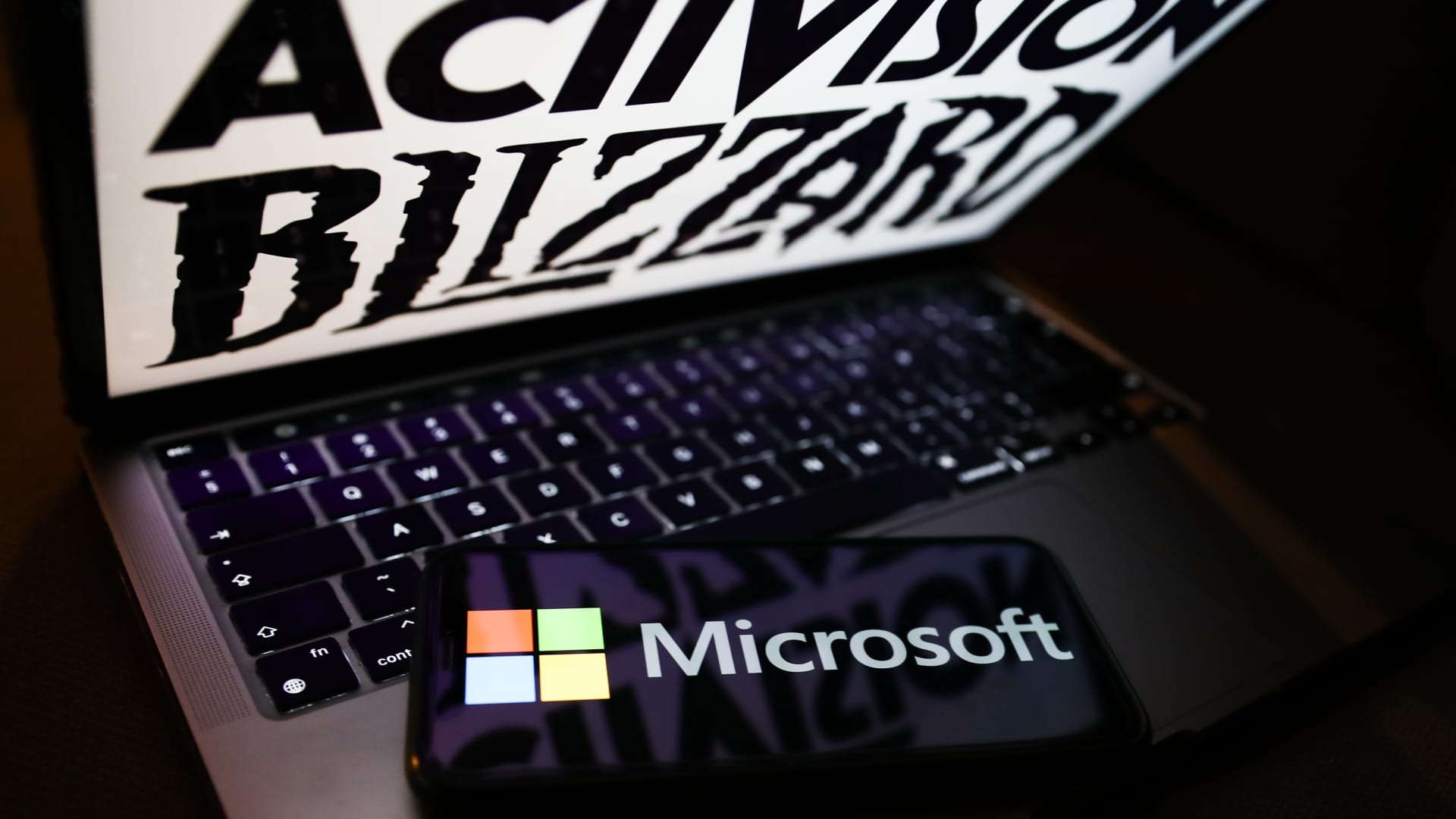UK regulator says it may clear Microsoft's new Activision Blizzard takeover offer
The U.K.'s competition regulator says Microsoft's restructured takeover proposal of Activision Blizzard, submitted in August, "opens the door to the deal being cleared."

Microsoft submitted a new proposal to U.K. regulators for the takeover of American game publisher Activision Blizzard after its initial proposal was rejected.
Nurphoto | Nurphoto | Getty Images
LONDON — The U.K.'s competition regulator on Friday said Microsoft's restructured takeover proposal of Activision Blizzard, submitted in August, "opens the door to the deal being cleared."
The U.K. Competition and Markets Authority had blocked the Redmond tech giant's initial $69 billion transaction, first put forward in January 2022, on concerns that it would restrict competition in the nascent cloud gaming sector.
Microsoft then proposed a new takeover deal, offering to divest cloud rights for existing Activision PC and console games — and for new games published by Activision over the next 15 years — to French game publisher Ubisoft Entertainment before the sale is completed.
"While the CMA has identified limited residual concerns with the new deal, Microsoft has put forward remedies which the CMA has provisionally concluded should address these issues," the regulator said Friday, adding it still has "limited residual concerns that certain provisions in the sale of Activision's cloud streaming rights to Ubisoft could be circumvented, terminated, or not enforced."
Microsoft has offered remedies to ensure that the CMA can enforce the terms of the sale of Activision rights to Ubisoft, which the CMA provisionally said should address these lingering qualms. The U.K. regulator is now consulting until Oct. 6 on these points.
Microsoft and Activision both welcomed the announcement.
"We are encouraged by this positive development in the CMA's review process. We presented solutions that we believe fully address the CMA's remaining concerns related to cloud game streaming, and we will continue to work toward earning approval to close prior to the October 18 deadline," said Brad Smith, Microsoft vice chair and president, in an emailed statement.
"The CMA's preliminary approval is great news for our future with Microsoft. We're pleased the CMA has responded positively to the solutions Microsoft has proposed, and we look forward to working with Microsoft toward completing the regulatory review process," Activision Blizzard CEO Bobby Kotick said in a statement.
At the heart of the CMA's objections are concerns over Microsoft's potential advantage in the rising cloud gaming market — which is set to let users stream games through subscription services, much like watching shows on Netflix. Critically, cloud gaming could eliminate the need for costly specialized consoles, allowing players to access the games on PCs, mobile phones and TVs.
Alex Haffner, competition lawyer at U.K. law firm Fladgate, said the Friday announcement has "given interested parties two weeks to comment on the remedies proposed before reaching a final decision, but it now seems inevitable that the deal with receive full and final clearance."
Haffner added, "Once the dust settles on what has been a tumultuous investigatory process there will be important lessons to be learned by all concerned and the ongoing spotlight on the way that competition regulators such as the CMA deal with "Big Tech" will continue to attract significant attention."
The CMA has put up the staunchest opposition to Microsoft's acquisition of the Call of Duty maker, which has also encountered criticism from European Union authorities and U.S. regulators. EU officials were first to clear the deal in May, after Microsoft offered concessions to the tune of royalty-free licenses to cloud gaming platforms to stream Activision games that a buyer has purchased. The CMA refused similar terms.
The U.S. Federal Trade Commission meanwhile took its attempt to freeze the takeover to court. A federal judge in San Francisco denied the injunction in July.
— CNBC's Arjun Kharpal contributed to this report

 ShanonG
ShanonG 































